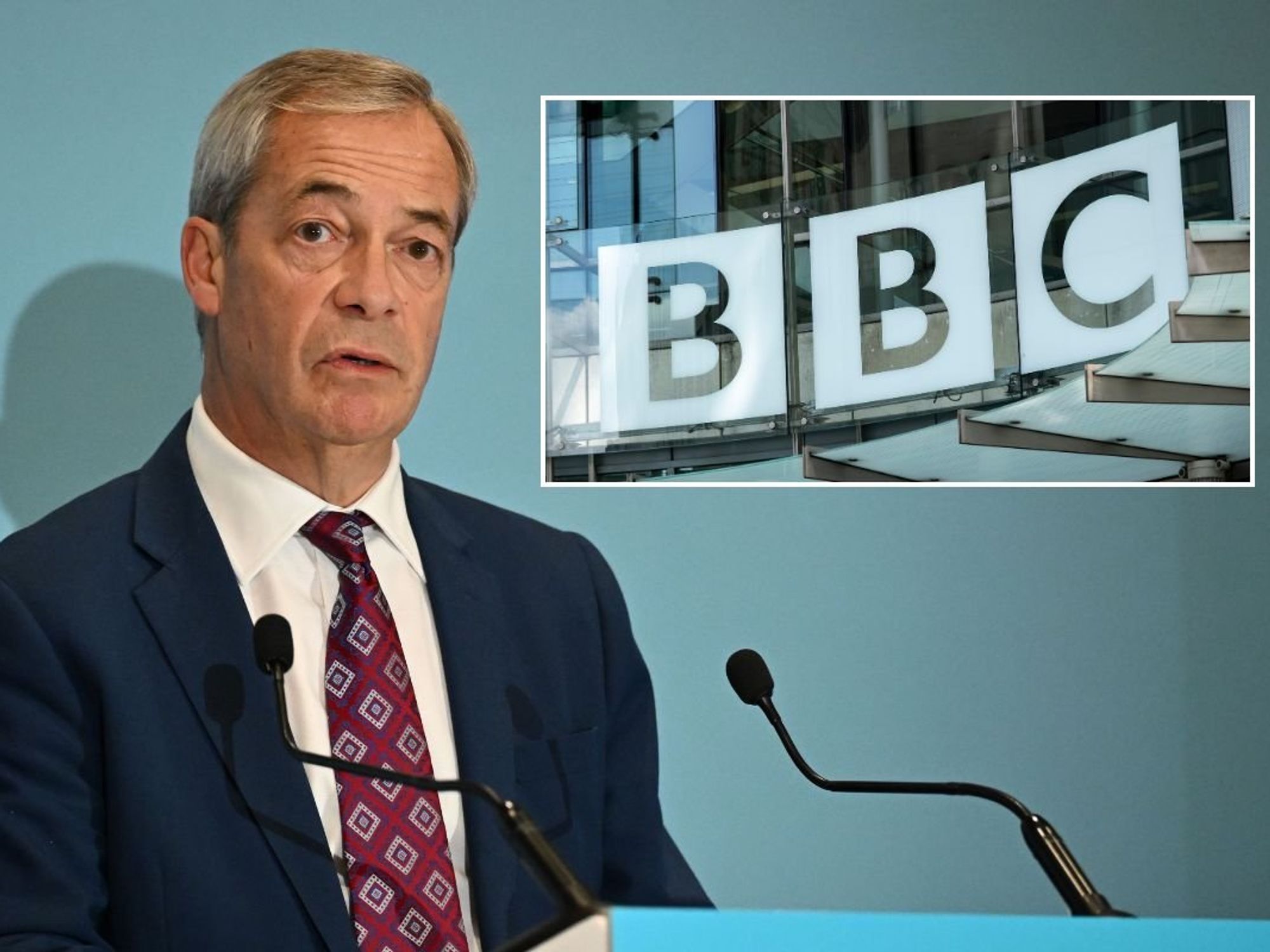Keir Starmer's monomania must stop. The Windrush generation did NOT build modern Britain - Colin Brazier
OPINION: The Prime Minister is grotesquely exaggerating the debatable upsides of immigration
Don't Miss
Most Read
Trending on GB News
Keir Starmer has a chronic case of monomania. That’s the word psychologists use to describe an obsessive type of behaviour - a mania which sees sufferers make huge claims for things which are, in reality, either trivial or bogus.
Evidence for this diagnosis? Look no further than Downing Street this week, where the prime minister hosted an event to celebrate (“celebrate”, as in YOU WILL CELEBRATE), the ancient festival of Windrush Day (est. 2018).
On his X account, Starmer afterwards noted that: “This government will never forget the legacy of the Windrush generation, who laid the foundations for modern Britain.”
Let that sink in. In our PM’s monomaniacal view, the Britain of today is built - not on the blood, toil and sacrifice of generations of indigenous Britons - but instead hinges on the relatively recent arrival of migrants from the Caribbean. Beginning with the disembarkation of 802 West Indians from the HMT Empire Windrush in 1948.
This Windrush Monomania is not without side effects. The most obvious is that, by grotesquely exaggerating the debatable upsides of immigration from one part of the world, Starmer marginalises contributions from elsewhere.
In this, he is not alone. Take last year’s decision by Labour’s London Mayor to rename one of the capital’s overland railways ‘The Windrush Line’. It was astonishing that no thought was given to the Irish migrants who, to a great extent, built swathes of the city’s transport infrastructure.
It’s not just navvies who get overlooked because of Windrush Monomania. I grew up in Bradford, not far from a Ukrainian Church. Elsewhere in the city, there were Poles, Hungarians and Czechs who arrived in their thousands during or after World War Two.
Like the Windrush Generation, they arrived to fill job vacancies in the wake of British wartime casualties. Unlike the Windrush Generation, they do not enjoy anything like the same official government veneration.
Why is that? Why is it that our PM singles out Caribbeans as having “laid the foundations for modern Britain”, rather than Irish canal diggers or Polish farm-hands or Indian doctors?

Keir Starmer's monomania must stop. The Windrush generation did NOT build modern Britain - Colin Brazier
|Getty Images
If nothing else, Starmer’s language betrays a desire to declare Year Zero. Keen students of Marxist history will remember that Year Zero was the term coined by communist followers of the Cambodian despot Pol Pot. It was intended to reflect a belief that, to start a gilded new society, every trace of the old must be obliterated. History must start again.
But why the particular focus on the role played by West Indians in this Long March to Keir Starmer’s Promised Land? The suspicion will be that his Windrush Monomania reflects a form of displacement. By overstressing the contributions of the Caribbean, the downsides of that diaspora’s legacy can be downplayed.
Or, as Rakib Ehsan pointed out this week in an article for UnHerd: “Compared to Black Caribbeans, the Indian and Irish ethnic groups fare much better in terms of family stability, educational attainment, socio-economic achievement, and respecting the rule of law. Yet their postwar migrants are not celebrated to the same extent as the Windrush generation, despite paving the way for intergenerational success.”
This is a monomania that comes with a price tag for the rest of us. The rebranding last year of London’s overland routes cost £6.3m. The newly-minted role of ‘Windrush Commissioner’ comes with a salary of £130,000 and a requirement, according to the Home Office, to “drive the cultural change, accountability and justice the Windrush generations deserve”.
And what does the Windrush Generation deserve? Listening to some, it’s a miracle Britain ever survived without them. One Labour MP marked Windrush Day by noting that “You called…and we came.” This ignores the historical fact that the Labour government of the late 1940s was far keener on migration from Europe than the Caribbean.
And yet that hasn’t stopped liberal commentators presenting those early Caribbean migrants as motivated by a heroic desire to help a Britain buffeted by wartime exigencies. As if the lure of good pay and a better quality of life had nary a role to play.
So what really lies behind the Windrush Monomania? The easy answer is that it reflects institutional guilt that 83 West Indians were wrongly deported back to the Caribbean from 2018. But a stronger clue lies closer to hand. This year, there is a strengthening belief that the Notting Hill Carnival is no longer viable.
Its cost alone is astronomical, with an extra 7000 police officers needed on duty, and local businesses forced to close because of the threat of crime. Last year, there were getting on for 300 arrests and several stabbings, some fatal.
The sad reality, not the monomania, is that - as the Carnival reminds us - Caribbean immigration has a mixed report card. It has brought some good things to Britain, but also things we could have done without. By presenting the influx, as Windrush Day does, as an act of charity by people who have reshaped Britain wholly for the better, is way, way off the mark.
Unlike some, I don’t believe that there was a deliberate policy by Labour in the Blair years to “rub the Right’s nose in diversity”. But when our prime minister offers such a bizarrely one-sided version of history, exclusively referencing the positive contributions of one community in spite of much evidence to the contrary, we are entitled to be suspicious.
For some, it builds on a sense that our elites are desperate to paper over the cracks of multiculturalism and will reach for whatever sophistry they can to in order to present migration as historically inevitable as well as socially desirable. It ignores many of those who have legitimate misgivings.
As one of the posts in reply to my tweet about this said: “Like the unrelenting Pride tsunami, the absurdist mythologising of Windrush will do far more harm than good. It will just antagonise people further at a time when tensions are already high.”
More From GB News











